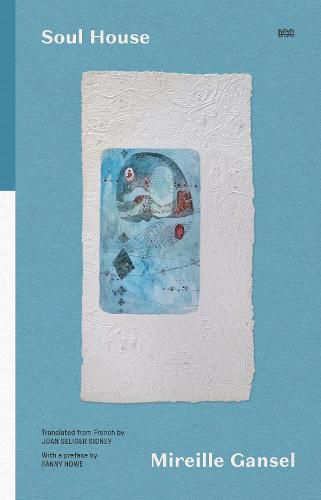Readings Newsletter
Become a Readings Member to make your shopping experience even easier.
Sign in or sign up for free!
You’re not far away from qualifying for FREE standard shipping within Australia
You’ve qualified for FREE standard shipping within Australia
The cart is loading…






In the first of her poetry books to appear in English, acclaimed French-Jewish poet, translator, and translation-theorist Mireille Gansel crisscrosses time and extends hospitality to exiled poets and peoples in her quest to recreate a lost literary and spiritual home. Gansel opens this meditative volume of 53 prose poems with an epigraph from Gaston Bachelard: 'against all odds, the house invites us to say: I will be a citizen of the world despite the world.' In these war-torn days of refugees fleeing to Europe, Gansel strives to describe what we have in common, creating a crossroads of people, places, and languages she has loved. For Gansel, a poet rebuilding her 'soul house,' every word is a building block. At the same time that she welcomes the stranger to her lost house, poetry is her weapon -- 'these migrant poems from all languages, these smuggled words that no border can stop' -- with which to fight persecution and exile. Sophie Ehrsam wrote, 'The 'soul house' is anything that harbors a glimmer, a hope, including an open door or an outstretched hand.'
$9.00 standard shipping within Australia
FREE standard shipping within Australia for orders over $100.00
Express & International shipping calculated at checkout
Stock availability can be subject to change without notice. We recommend calling the shop or contacting our online team to check availability of low stock items. Please see our Shopping Online page for more details.
In the first of her poetry books to appear in English, acclaimed French-Jewish poet, translator, and translation-theorist Mireille Gansel crisscrosses time and extends hospitality to exiled poets and peoples in her quest to recreate a lost literary and spiritual home. Gansel opens this meditative volume of 53 prose poems with an epigraph from Gaston Bachelard: 'against all odds, the house invites us to say: I will be a citizen of the world despite the world.' In these war-torn days of refugees fleeing to Europe, Gansel strives to describe what we have in common, creating a crossroads of people, places, and languages she has loved. For Gansel, a poet rebuilding her 'soul house,' every word is a building block. At the same time that she welcomes the stranger to her lost house, poetry is her weapon -- 'these migrant poems from all languages, these smuggled words that no border can stop' -- with which to fight persecution and exile. Sophie Ehrsam wrote, 'The 'soul house' is anything that harbors a glimmer, a hope, including an open door or an outstretched hand.'